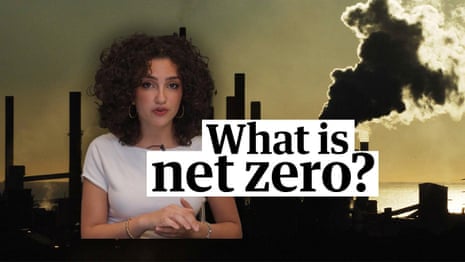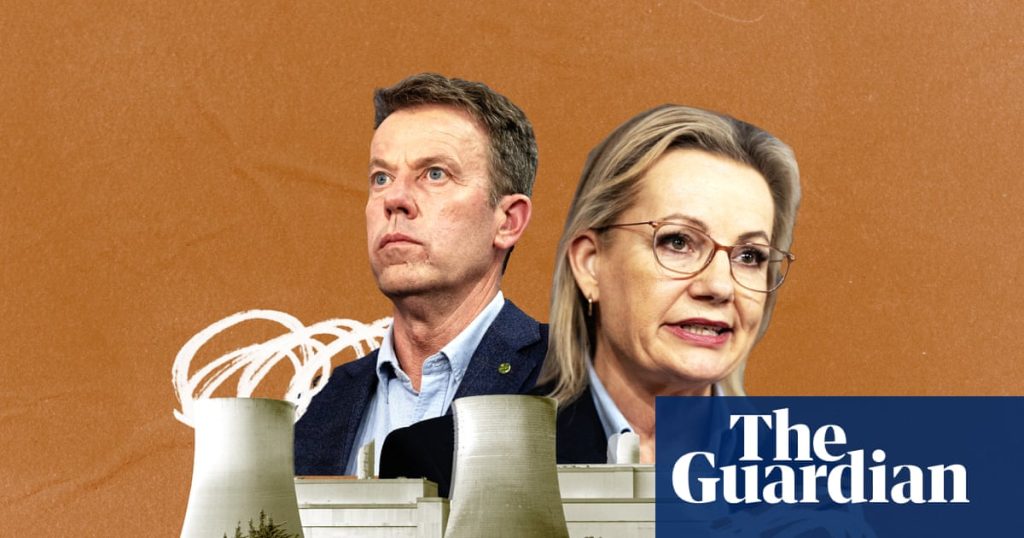Coalition MPs are being told to argue that the decision to dump a net zero emissions target is “entirely consistent” with the Paris agreement, despite leaked documents suggesting the opposition is aware such a position could conflict with Australia’s obligations under the climate pact.
Guardian Australia has obtained talking points issued to MPs to help them stay on message about Sussan Ley’s new energy and emissions plan, which was finalised on Sunday after months of bitter infighting.
Coalition MPs have adopted vastly different approaches to communicating the plan, with moderates who lost the fight to retain a net zero emissions target – including Dave Sharma, Tim Wilson, Andrew Bragg and Julian Leeser – choosing to ignore it on their social media channels.
The opposition has pledged to ditch a net zero emissions target but remain in the Paris agreement, allowing MPs to argue the Coalition hasn’t abandoned climate action.
Sign up: AU Breaking News email
The Paris agreement sets a global aim for carbon neutrality in the second half of the century and does not force countries to set net zero emissions targets.
However, the agreement requires signatories to progressively raise their emissions reduction goals to “reflect its highest possible ambitions” with each new five-year target, meaning countries cannot downgrade their existing commitments.
A future Coalition government would therefore be breaching Australia’s obligations if it dropped the net zero emissions by 2050 target and rescinded the Albanese government’s 2030 and 2035 goals, as it plans to do.
The leaked talking points prepare MPs to face several questions about the Paris agreement, including whether it is “contradictory to drop net zero 2050 but stay in Paris”.
“There is no contradiction at all. The Paris Agreement is built on national choice,” the suggested response reads.
“Australia will remain in Paris. We will continue to reduce emissions. But we will do it in a way that keeps power affordable for families who are already under pressure. That is entirely consistent with Paris and it is the right call for our country.”
The document poses several potential follow-up questions about how the position fits with the Paris requirement to constantly increase targets, indicating the Coalition is alive to scrutiny of the apparent contradiction.
If asked how a future Coalition government could dump Labor’s targets, MPs are advised to respond: “Paris does not require Australia to copy Labor. Paris requires Australia to contribute.”

The guidance points out that Paris is a “collective agreement, not a contract with penalties”.
“Countries are encouraged to offer their highest possible ambition. Our view is that the highest responsible ambition Australia can offer is one that keeps energy costs down, protects jobs and continues responsible emissions reduction,” it stated.
Guardian Australia asked the shadow minister for energy and emissions reduction, Dan Tehan, if he stood by the assertion that abandoning a net zero emissions target was consistent with Australia’s obligations under Paris.
“As detailed in the talking points, the answer is yes,” a spokesperson said.
After initial talking points were circulated after Sunday’s meeting, an updated version was distributed to pre-empt questions about the funding of coal-fired power stations.
Sign up to Breaking News Australia
Get the most important news as it breaks
Privacy Notice: Newsletters may contain information about charities, online ads, and content funded by outside parties. If you do not have an account, we will create a guest account for you on theguardian.com to send you this newsletter. You can complete full registration at any time. For more information about how we use your data see our Privacy Policy. We use Google reCaptcha to protect our website and the Google Privacy Policy and Terms of Service apply.
after newsletter promotion
Moderate Liberal MPs were seething on Sunday after the policy left the door open to using taxpayer funds to prop up coal-fired power stations via a “technology neutral” capacity investment scheme.
The Nationals senator Matt Canavan has used the policy to renew calls for the construction of new coal-fired power stations.
In an interview on Monday night, Ley said a coal project could be subsidised under the Coalition’s plan “if it stacks up” – but stressed there were no such proposals on the table.
If asked whether taxpayers could support new coal projects, MPs are advised to respond: “If a private investor wants to put forward a project of any kind, they would have to demonstrate that it delivers affordable power, that it stacks up commercially, and that it fits within the rules of the scheme.”
“There is no blank cheque and there is no planning to build new coal fire plants,” the document stated.
Ley has conducted almost 30 media appearances since Sunday’s announcement, prosecuting the case that ditching a net zero emissions target and pursuing “energy abundance” – including with coal and nuclear – would lower power prices for households and businesses.
Industry groups and energy experts have disputed that claim.
The suggested lines circulated to MPs have left some confused and frustrated as they grapple with how to sell – or defend – the policy to voters.
“It could be argued that the policy brings all sides of the Coalition together,” one Coalition MP said.
“No one is sounding convincing on any issue regarding anything.”

